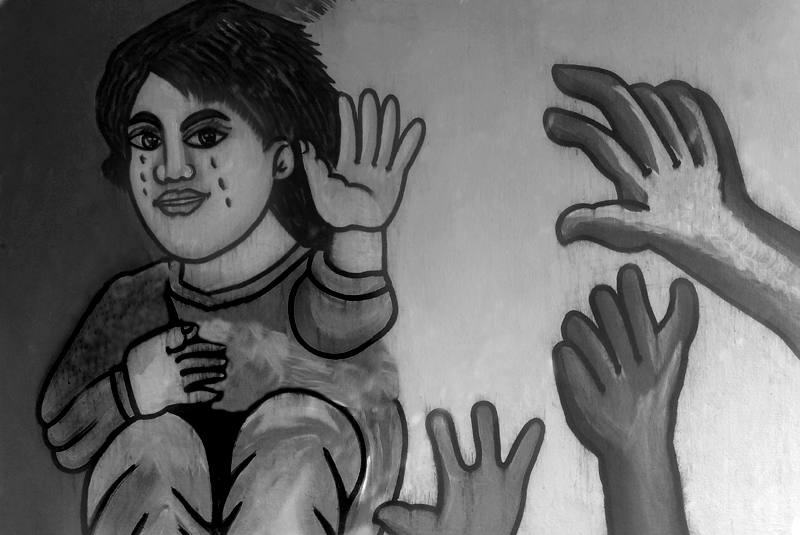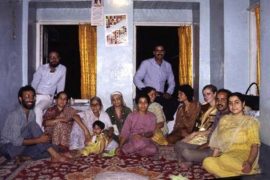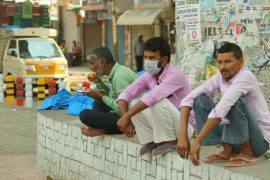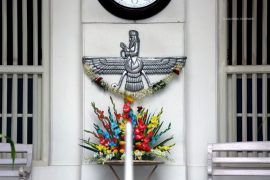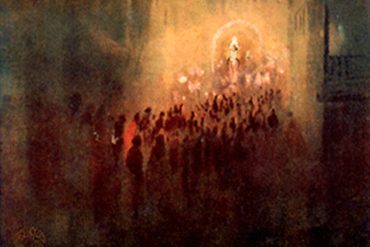In the UK, the debate around so-called Asian grooming gangs and the sexual threat they pose to vulnerable white girls shows no sign of abating. A leaked report produced by the Independent Office for Police Conduct (IOPC) has upheld a complaint made by a father whose daughter had been missing for a week. He said a police officer told him that Rotherham “would erupt” if it came out that Asian men were habitually having sex with underage white girls.
The five-year investigation conducted by the IOPC, codenamed Operation Lindon, has produced a highly critical report. It states that the South Yorkshire police were scared to take action against a group of Asian men who were sexually abusing a young girl for fear of triggering unrest in the Asian community and being branded racist. Instead, they did little to disrupt the gang and safeguard the vulnerable victim and other young girls, even though they knew they were being subjected to horrendous sexual abuse.
South Yorkshire police has accepted the findings of the report and said it has been developing a “far deeper understanding” of child sexual exploitation since 2014. It will now await the full and final report, which will focus on the actions of its former senior command team and whether it deliberately turned a blind eye to what it knew was happening.
This is something the media has been suggesting for many years due to the explosive mix of sex, race and excessive political correctness. The Times has even claimed there was a “conspiracy of silence on UK sex gangs”. The leaked IOPC report came just days after yet another scathing report was published, this time in Manchester, about the abject failure of the police and children’s services to protect vulnerable young girls from Asian grooming gangs there.
Cultural sensitivities
In 2011 Jack Straw, the former home secretary, suggested there was a cultural element to the then-new phenomenon of “grooming gangs” and suggesting some men of Pakistani origin see white girls as “easy meat”. The former Blackburn Labour MP spoke out after two Asian men who abused girls in Derby were given indeterminate jail terms. At the time, he was quickly shouted down and labelled a racist. It was even suggested that his comments were an attempt to influence a pending Oldham by-election.
Despite the continuous flow of cases – other examples were in Rochdale, Oxford and Huddersfield) – the public is constantly being reminded that it is not just Asian men who commit “on-street” child sexual exploitation.
Clearly this type of sexual exploitation is not exclusive to Asian/Pakistani men. Nevertheless, given the severity of these offences and long term impact they have on young people’s lives, it is important to question whether there are cultural elements influencing how perpetrators see young white girls.
As a criminologist and former senior detective, I have interviewed numerous second-generation Asian-Pakistani men convicted of grooming and sexually abusing young vulnerable white girls. The majority claimed they were innocent and put forward theories of how the government, police, judges and witnesses had conspired to wrongly convict them. It was also clear that they did not see their victims as children and therefore did not consider themselves to be sex offenders.
An example of this mindset was the leader of the Rochdale grooming gang, Shabir Ahmed, who failed to overturn his convictions at the European Court of Human Rights by claiming an all-white jury was part of a conspiracy to scapegoat Muslims. During his trial, Ahmed repeatedly accused the judge, the jury, and the police of being part of a racist conspiracy against Muslims and said: “It’s all white lies.” The story (focusing on the victims in this case) was subsequently made into the BBC drama Three Girls.
Many of the offenders I have spoken to were also involved – or on the fringes of – low-level crime, most commonly drug dealing and theft. They tended to lack victim empathy and had a habit of trying to taint victims by suggesting they lied about their age or were already drug addicts and/or sexually promiscuous.
The victims of child sexual exploitation in these cases were targeted because they were considered “available” by their circumstance and behaviour: they were in care, truanting from school, drinking alcohol, taking drugs, staying out late at night or being overtly sexual. The vast majority of victims were underage white girls. Their perceived availability and vulnerability led the perpetrators to believe, rightly, that these girls were unlikely to tell anyone what was happening to them.
When it comes to child sexual exploitation, grooming takes on a series of behaviours designed to ensure secrecy, increase victim compliance, build rapport and avoid detection. Extensive research tells us that these tactics make sexual abuse much more likely.
Abandoned victims
Review after review has found that there is a tendency by almost all protection agencies to essentially leave these vulnerable girls to suffer and let the criminals continue their offending. One of the reasons for this is the issue of the ethnicity of the perpetrators.
As a criminologist, I believe all criminals should be defined by their actions and punished accordingly. But it is necessary and relevant for society to discuss the ethnicity of perpetrators and victims and how this influences specific crimes.
It is not racist to do this, just as it is not racist to say that the majority of men on the UK sex offenders register for sexual crime are white. It is also important to remember that black and minority ethnic children and young people are victims of sexual exploitation, too.
But in May 2019 it was estimated that there were at least 73 grooming gangs operating in the UK. The inability of South Yorkshire Police and other forces to act professionally and speak openly and plainly about the ethnicity of on-street child abusers is a significant factor in why these horrific offences have gone undetected for so long and it remains a significant factor today.
This story was first published in The Conversation.
-30-
Copyright©Madras Courier, All Rights Reserved. You may share using our article tools. Please don't cut articles from madrascourier.com and redistribute by email, post to the web, mobile phone or social media.Please send in your feed back and comments to [email protected]

